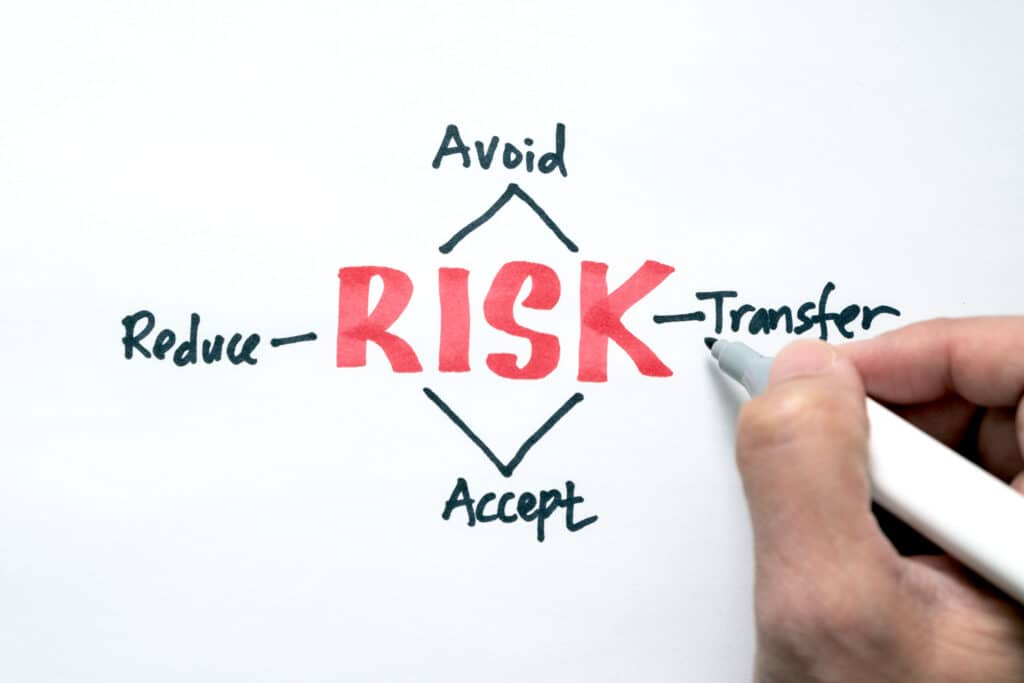Risk Management and Risk Assessment in every facet of life, risk is an inherent factor. Whether it’s in business, finance, health, or personal decisions, there’s always a level of uncertainty that needs to be navigated. However, what separates successful endeavors from failures often boils down to how effectively risks are managed and assessed. In this blog, we delve into the significance of risk management and risk assessment, exploring why they are indispensable tools in today’s dynamic world.
Understanding Risk Management
Risk management can be defined as the process of identifying, assessing, and prioritizing risks, followed by the coordinated application of resources to minimize, monitor, and control the probability or impact of unfortunate events. It’s a proactive approach that enables individuals, organizations, or governments to anticipate potential problems and take appropriate measures to mitigate them. Why is risk management and risk assessment Important?
Protecting Assets and Resources: Whether it’s financial investments, human resources, or physical assets, effective risk management safeguards what’s valuable. By identifying potential threats and vulnerabilities, organizations can implement strategies to minimize losses and ensure continuity in operations.
Enhancing Decision Making: Risk management provides decision-makers with valuable insights into the potential outcomes of their choices. It allows them to weigh the risks against potential rewards, enabling more informed and strategic decision-making processes.
Strengthening Resilience: In an unpredictable world, resilience is key to survival. Through risk management, organizations can build resilience by anticipating and preparing for disruptions, thereby minimizing their impact and accelerating recovery.
Compliance and Regulation: Many industries are subject to regulatory requirements and compliance standards. Effective risk management ensures that organizations meet these obligations, avoiding legal repercussions and maintaining public trust.
Understanding Risk Assessment:
Risk assessment is a crucial component of risk management, focusing on the systematic evaluation of potential risks, their likelihood, and potential impact. It involves identifying hazards, analyzing vulnerabilities, and determining the level of risk associated with specific scenarios. Why is risk management and risk assessment Important?
Early Detection of Threats: Risk assessment helps in identifying potential risks before they materialize into significant problems. By conducting thorough assessments, organizations can detect vulnerabilities and take proactive measures to mitigate them.
Prioritizing Risks: Not all risks are equal in terms of their potential impact. Risk assessment allows organizations to prioritize risks based on their severity and likelihood, enabling them to allocate resources efficiently and focus on areas of greatest concern.
Resource Allocation: Resources such as time, money, and manpower are limited. Risk assessment helps organizations allocate these resources effectively by identifying high-priority risks that require immediate attention and those that can be addressed later.
Informing Risk Management Strategies: The insights gained from risk assessment inform the development of comprehensive risk management strategies. By understanding the nature and magnitude of potential risks, organizations can tailor their risk mitigation efforts to address specific threats effectively.
Conclusion
In a world characterized by uncertainty and volatility, risk management and risk assessment have become indispensable tools for individuals, organizations, and governments alike. By identifying, assessing, and mitigating risks, they not only protect valuable assets and resources but also enhance decision-making, strengthen resilience, and ensure compliance with regulatory requirements. In essence, effective risk management and risk assessment are not just processes; they are fundamental pillars of success in today’s dynamic environment. Embracing them enables entities to navigate uncertainties with confidence and achieve sustainable growth in the face of adversity.

